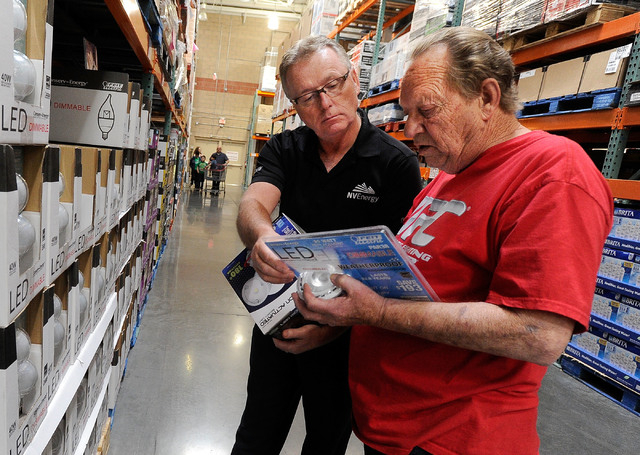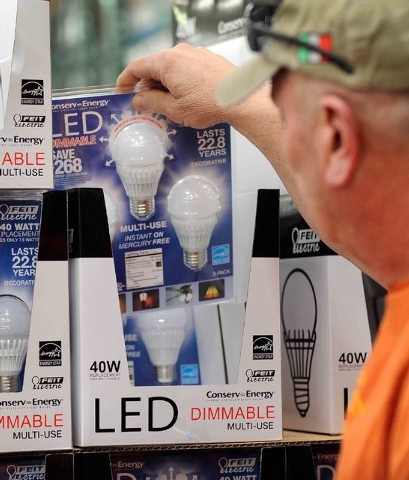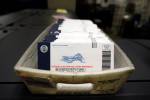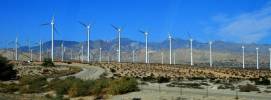NV Energy launches discount LED lighting program for consumers
Besides the money that can be saved by installing LED lights, Adam Grant, NV Energy’s program manager for energy efficiency, offers another good reason to try them: You’re not likely to have to change the bulb again.
Many LED light bulbs are supposed to last 22.8 years. In that period of time, most people will have moved on.
NV Energy has launched a program offering discount LED products to its customers throughout the state. LED bulbs resemble an ice cream cone and can be expensive, sometimes more than $20 each. However, they use about 80 percent less energy and save about $135 over their lifetimes on electricity costs compared to the traditional incandescent lights.
Grant said their goal is to save customers in Northern Nevada 1 million kilowatt hours of electricity and those in Southern Nevada 4 million to 5 million kilowatt hours if they switch to the new lights. The program was approved by the Public Utilities Commission in December.
Stores such as Home Depot, Wal-Mart and Costco are offering the discount bulbs. More will be added later in the year. The qualifying Energy Star bulbs that sell at discount prices carry a “simple savings” sticker. If you don’t see them, ask store employees when they will be available.
LED products use “light-emitting diodes” to produce light very efficiently. An electric current is passed through semiconductor materials that illuminate the tiny light sources.
The discount bulbs were not available at stores visited in the Carson City area on Thursday and Friday. A Wal-Mart employee said they should be available by the end of the month and that his store eventually will sell only energy-efficient bulbs.
“Count on spending $6 to $7 for two bulbs in the future,” he said.
NV Energy estimates that lighting accounts for 12 percent of the electricity costs in an average Nevada home.
In both Southern and Northern Nevada, the major electricity user is the air conditioner. Refrigerators and electric washers and dryers also use a lot of energy.
While Home Depot in Carson City wasn’t yet offering NV Energy discounted bulbs, a saleswoman on Friday detailed why the LED bulbs were cheaper in the long run than incandescent bulbs. Home Depot was displaying the new bulbs at the store entrance, but the selection was limited.
A 60 watt LED bulb, the saleswoman pointed out, uses the energy of a 9 watt incandescent bulb.
Grant said the supply of LED bulbs available in stores will increase as the year goes on; 100 watt LED bulbs are not available now but will be later in the year.
Information contained with the 60 watt bulbs indicates they use about $1.50 in energy a year, based on three hours of daily use.
In contrast, statements on the incandescent bulbs indicate more than $6 a year in electricity costs.
So in a year or so even the initially more expensive LED bulbs will bring savings to the buyer.
“LED lights are the most energy-efficient lighting products on the market,” Grant added.
To find out where to buy discount LED lights by ZIP code, visit the website: nvenergy.com/lighting.
Contact Capital Bureau Chief Ed Vogel at evogel@reviewjournal.com, or at 775-697-3901 or on Twitter @edisonvogel.





























